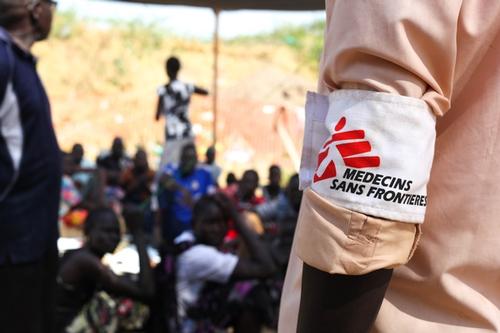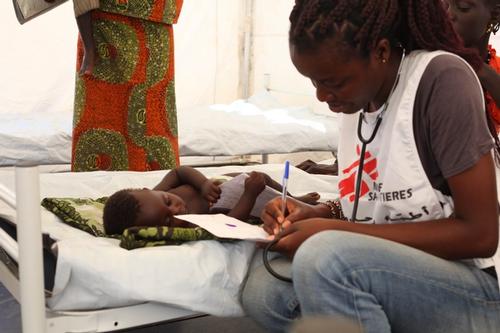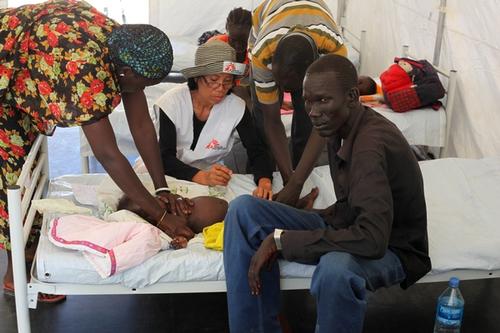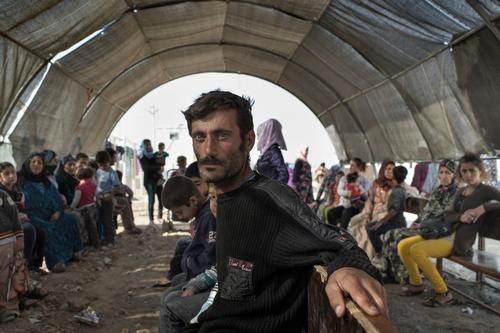Juba, 30 December 2013 - Tens of thousands of South Sudanese have arrived in Awerial, in Lakes state, after fleeing violence in Bor, says the international medical organisation Médecins Sans Frontières (MSF). With thousands more people arriving each day, living conditions are verging on the catastrophic, says MSF, and there is an urgent need for increased medical and humanitarian assistance.
Following intense fighting last week between governmental and rebel troops in Bor, the capital of Jonglei state, more than 70,000 people, mostly women and children, fled the city to gather around the town of Awerial on the far side of the river Nile, some 50 km from Bor.
Alarming situation
“The situation for these women and children is very alarming,” says Aurélie Dupont, MSF’s emergency coordinator in Awerial. “They have fled their homes and have arrived here with few belongings. There is no clean water, no food, and no place to shelter or sleep. They are relying solely on the help of the local population.”
MSF’s emergency team is supporting the two Ministry of Health clinics that are still running by providing consultations and supplies of medicines. Other main priorities for MSF include providing clean drinking water to prevent cases of diarrhoea, vaccinating children against measles and providing obstetric care for pregnant women. Another major concern is the provision of food, which needs to be scaled up urgently.
Insufficient humanitarian response
“The potential for disease is enormous,” says David Nash, MSF’s head of mission in South Sudan, “And yet the humanitarian response in Lakes state has been very small. There is an urgent need for clean water, latrines and waste management. We urgently need other organisations to step up and provide humanitarian aid as more and more people flee the violence.”
Emergency teams are being deployed to reinforce MSF’s existing activities and to respond to needs as they arise. MSF’s medical activities continue to operate in all 12 of its programmes across the country.
MSF has been working in the region that today constitutes the Republic of South Sudan since 1983. MSF works in eight of South Sudan’s ten states and responds to emergency situations including large-scale displacement, refugee influxes, alarming nutrition situations and outbreaks of disease, in addition to providing basic and specialist healthcare services.







